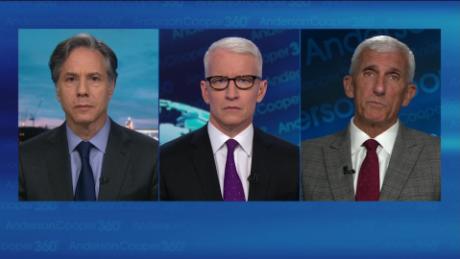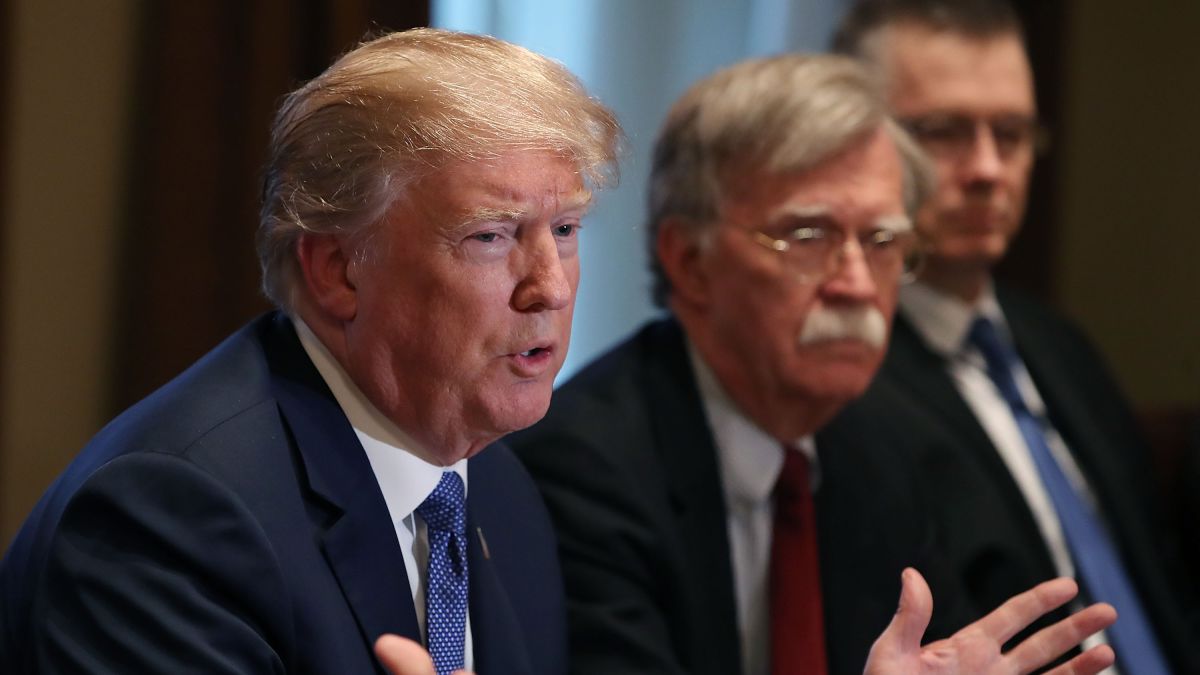President Trump, now is not the time for half-baked military action
Moscow (CNN)You don't have to be writhing in the visions of Armageddon to suffer more than a shudder when reading the words of Irish poet W.B. Yeats against the backdrop of the latest American threats aimed at Syria.
Did the great wordsmith reveal as much poesy as prophesy when, in 1919, he appeared to foresee the differences -- and dangers -- of the Obama administration's transition to Trump when it comes to Syria when he wrote "The Second Coming?"
"The best lack all conviction..." Yeats wrote.
A more succinct summation of Obama's own admission that he had "no strategy" on how to deal with Syria in the early stages of the uprising against Bashar al-Assad would be hard to find.
US allies warn of action on suspected Syria chemical attack
This week, though, we've seen verbal clashes between the US and Russia at the United Nations Security Council, which remind one of how that Yeats line continues: "... while the worst / Are full of passionate intensity."
Outrage over the images of children frozen in death, their mouths gagged with foam as the alleged victims of another Syrian government gas attack on its own people, has led Nikki Haley, the US ambassador to the UN, to call the perpetrator behind the attack "a monster."
Such passionate intensity is understandable. There's something visceral about killing with gas. It recalls the Holocaust. It conjures up almost identical photographs of Saddam Hussein's attack on the Kurds of Halabja.
Anger at such images, though, is nothing more than "passionate intensity." Only Turkey's government and a handful of other less important regional figures can claim otherwise. The Turks have consistently called for a no-fly zone to be imposed over Syria to keep its air force from bombing its own people. No one else has.
Obama didn't even have the courage of his lack of convictions to observe his own red line on the use of nerve agents by Syria against Syrians.
Interventions and support of rebels fighting the Assad regime have been limited to giving them enough support to die slowly at the hands of a nexus of Damascus, Iran and Russia.
British, French, American and worldwide expressions of outrage cannot obscure the fact that getting rid of Assad has always spooked world capitals more than the horrors he inflicted on his own people.

Play Video
Trump: Syria attack will be met forcefully 02:51
The UN stopped counting the numbers of dead in Syria's civil war when it hit half a million four years ago. It was all just a bit much.
It makes no difference to a dead Syrian child if they are bombed or gassed. The end state is the same and the process probably just as agonizing.
It's true that nerve gasses like sarin and VX -- both produced in Syria -- are banned under international law. But war is the application of violence in order to break an enemy.
Britain firebombed Dresden in the Second World War. The US nuked Hiroshima and Nagasaki. Both mass attacks on civilians were intended to force the surrender of the Germans and the Japanese.
If Assad used nerve agents again, he's in violation of an agreement he signed to rid his country of them and of wider international laws -- again, this is true.
But he's been committing war crimes against his own people for years -- and with impunity.
The threat of some kind of punishment now will be deliberately calibrated, he knows, to be a little painful but not enough to topple his regime.
Worse, though, is that it risks testing the laws of unintended consequences.
Syria is now a crucible of war that threatens to spill over and ignite the entire region and perhaps even spread worldwide.
Trump cancels South America trip to monitor Syria response
In Lebanon and Israel, Hezbollah and the Israeli Defence Forces agree on one thing: that war between them may be almost unavoidable as a result of a sudden escalation in Syria. And both sides recognize the carnage that would distinguish such a conflict would be catastrophic for both.
But as Israel continues to try and degrade Iranian influence with the Syrian regime and its support for Hezbollah by attacking targets in Syria, the opportunity for accidental escalation into regional conflict grows.
These regional rivalries are dangerous enough.
Imagine a scenario in which a Russian air defense missile shoots down an American aircraft launched as a result of "passionate intensity" and a desire for revenge in the name of gassed children.
Or one in which a Russian command and control centre in a Syrian airfield is annihilated by an allied bomb and Russia retaliates with a cruise missile against the US fleet in the Mediterranean. The threat of escalation through accident is real.
Now is not the moment to launch half-baked punishment raids against Syria, or her allies.
Economic sanctions, imposed by the EU and US, are beginning to cripple the Russian economy.
This week Moscow's MOEX index fell by around 8%. The ruble tumbled by around 4% -- its biggest fall since 2016.
Smart sanctions targeting the Assad regime, strangling the ability of Russia to function as a destabilizing force in a rickety house of international law, are not glamorous. They're less satisfying than the gut instinct to punish those who commit revolting crimes.
But they have a lot less risk than "Mere anarchy is loosed upon the world." The introduction of superpower violence risks a "blood dimmed tide" -- again, Yeats' words -- sweeping through the Middle East and beyond. It's not worth the risk.
News Courtesy: www.cnn.com













